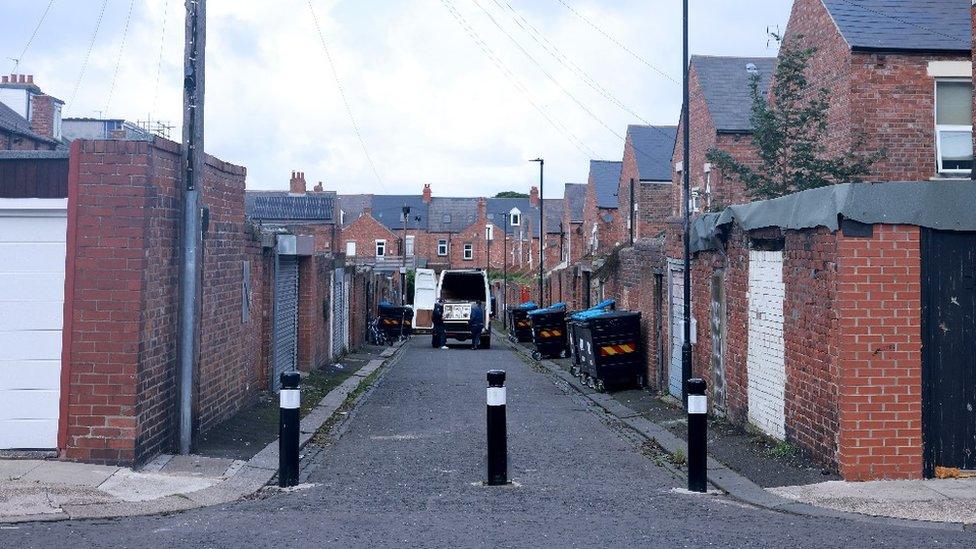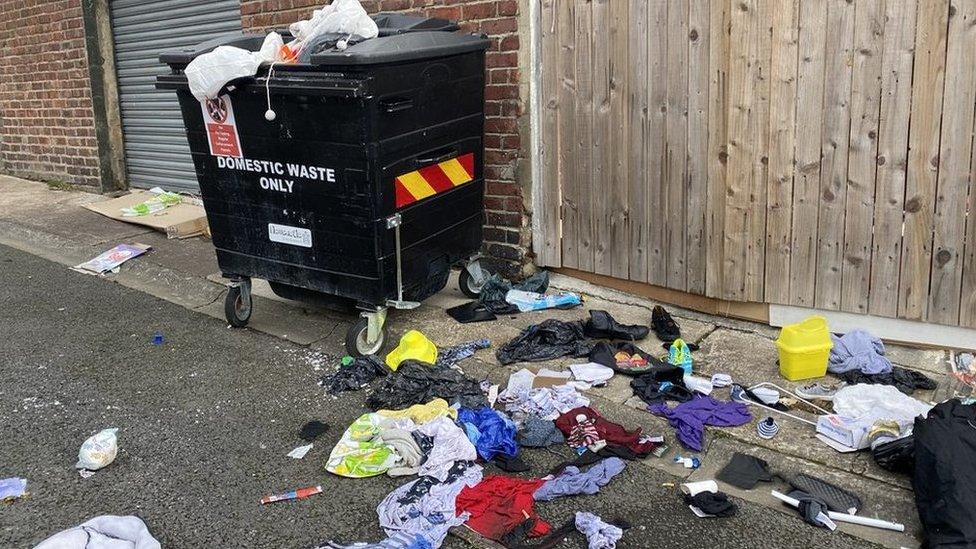Newcastle back lane bollards that prevent fly-tipping to stay
- Published

The rear of Wingrove Road at its junction with Severus Road is one of the four locations
Measures to block fly-tippers and tackle the problem of rubbish in Newcastle's West End are to be made permanent following a year-long trial.
Bollards were installed in four back lanes in Wingrove and Arthur's Hill following complaints from residents.
These included overflowing communal bins and vans dumping piles of trade waste in the back streets.
Following a drop in the amount of rubble and fly-tipping, the council has now said they will be staying for good.
Two formal objections have been made against the bollards by local residents in the time since they were installed, raising concerns about cutting off access to emergency services and local residents, according to the Local Democracy Reporting Service.
However, Newcastle City Council said all the back lanes were still accessible at one end and that there had been a noted shift in the kind of fly-tipping being witnessed, from building waste to small household items.
This suggested that the closures were "having a positive effect by reducing out of area vehicles driving to discard waste".
Councillor Jane Byrne, the council's cabinet member responsible for environmental crimes, said: "We know residents take great pride in where they live in the city so we would like to thank them for working with us and supporting the project to help keep our neighbourhoods safe and clean.
"Other measures trialled as part of the scheme such as having individual bins for some households are still under consideration."

Follow BBC North East & Cumbria on Twitter, external, Facebook, external and Instagram, external. Send your story ideas to northeastandcumbria@bbc.co.uk, external.
Related topics
- Published7 October 2021
